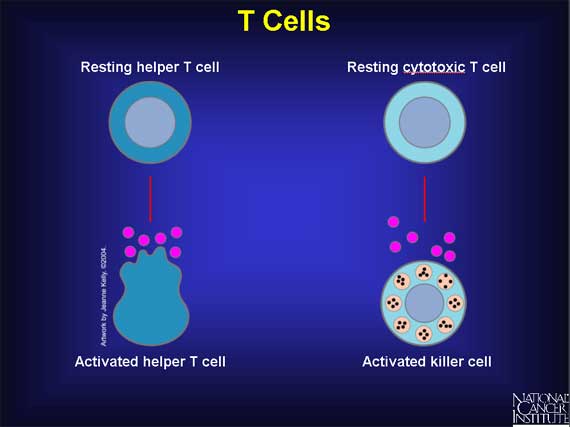|
T cells contribute to your immune defenses in two major ways. Some help regulate the complex workings of the overall immune response, while others are cytotoxic and directly contact infected cells and destroy them.
Chief among the regulatory T cells are helper T cells. They are needed to activate many immune cells, including B cells and other T cells.
Cytotoxic T cells (sometimes called killer T cells) help rid your body of cells that have been infected by viruses as well as cells that have been transformed by cancer but have not yet adapted to evade the immune detection system. They are also responsible for the rejection of tissue and organ grafts.

< Previous | Index | Next Slide > |